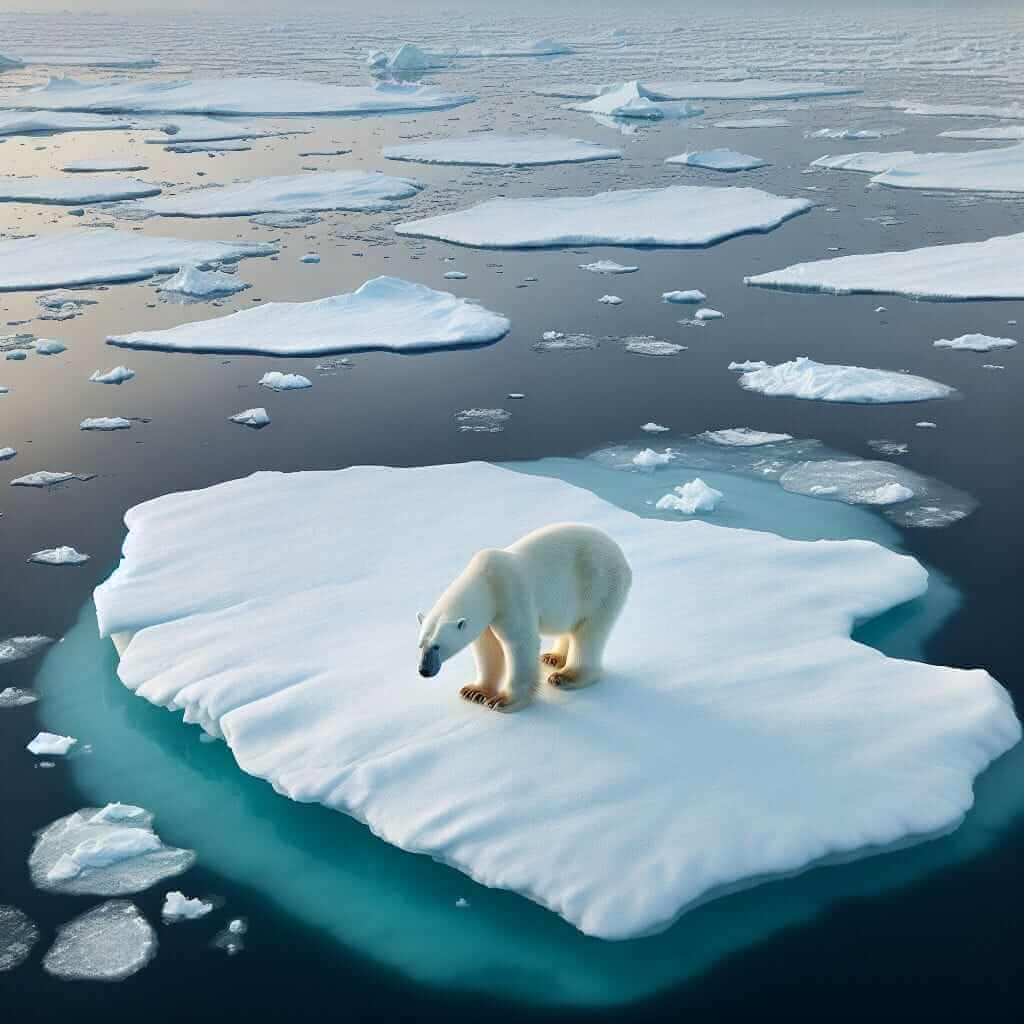The IELTS Reading section is a vital component of the exam, testing the candidate’s ability to understand and analyze various texts. Over the years, themes related to climate change have frequently appeared in the reading section due to their global importance. One such topic is “What are the effects of climate change on polar ecosystems?” This topic’s relevancy and frequent appearances make it a potential candidate for future exams.
To assist IELTS candidates in their reading preparation, this article will provide a comprehensive reading practice based on the effects of climate change on polar ecosystems. We will explore a crafted reading passage, followed by a series of questions in various formats. Additionally, we will provide detailed answer explanations, commonly encountered vocabulary, and essential grammatical structures.
Practice Reading Passage
The Effects of Climate Change on Polar Ecosystems
Climate change is profoundly impacting polar ecosystems, which consist of the Arctic and Antarctic regions. These ecosystems are characterized by extreme conditions and unique biodiversity that are particularly sensitive to environmental changes.
One significant effect of climate change on these regions is the reduction of sea ice. The Arctic sea ice has been diminishing at an alarming rate, influencing the habitat and survival of many species. Polar bears, for example, rely on sea ice to hunt seals. As the ice decreases, their foraging opportunities diminish, leading to nutritional stress and a decline in population.

Furthermore, the thawing of permafrost in polar regions releases greenhouse gases like methane, exacerbating global warming. This process not only contributes to climate change but also affects the structure of the soil and vegetation patterns.
In the Antarctic, the loss of ice shelves has a different yet equally devastating impact. The collapsing ice shelves contribute to rising sea levels, which can alter ocean currents and marine biodiversity. Species such as krill, which form the basis of the Antarctic food web, are particularly vulnerable to changes in sea temperature and ice coverage.
Climate change also disrupts the migration patterns of animals. Species such as the Arctic tern, which migrates between the Arctic and Antarctic, face challenges due to altered habitats and food availability. These changes can have cascading effects throughout the ecosystem, impacting a variety of species both directly and indirectly.
Lastly, human activities compounded by climate change, such as increased shipping and oil exploration, pose additional threats to polar ecosystems. These activities can lead to pollution, which further stresses an already fragile environment.
In conclusion, climate change has multiple and far-reaching effects on polar ecosystems. The reduction of sea ice, thawing of permafrost, and changes in animal migration patterns are just a few examples of the extensive impact. Immediate and concerted efforts are necessary to mitigate these changes and preserve the unique biodiversity of the polar regions.
Questions
Multiple Choice
- What is one of the primary causes of polar bear population decline according to the passage?
A. Increased shipping activity
B. Nutritional stress due to reduced hunting grounds
C. Pollution from oil exploration
D. Migration pattern disruptions
Identifying Information (True/False/Not Given)
- The Arctic tern only migrates within the Arctic region.
- True
- False
- Not Given
Matching Headings
- Match the statements below (A-F) with the correct paragraph numbers (1-5).
- A. Impact on sea level
- B. Human activities exacerbating climate change
- C. Effects of diminishing sea ice on polar bears
- D. Thawing permafrost releasing greenhouse gases
- E. Altered migration patterns and their consequences
- F. Immediate measures needed to preserve biodiversity
Summary Completion
- Complete the summary using words from the passage.
The 1 of sea ice and the thawing of 2 are critical issues affecting Arctic and Antarctic regions. These changes are leading to habitat loss for 3 and contributing to rising 4 levels. Moreover, human activities such as 5 and oil exploration further exacerbate these issues.
Answer Key & Explanations
- B – The passage mentions that polar bears face nutritional stress due to diminishing ice, which reduces their hunting grounds.
- False – The text states that the Arctic tern migrates between the Arctic and Antarctic, not just within the Arctic.
-
- Paragraph 1: C. Effects of diminishing sea ice on polar bears
- Paragraph 2: D. Thawing permafrost releasing greenhouse gases
- Paragraph 3: A. Impact on sea level
- Paragraph 4: E. Altered migration patterns and their consequences
- Paragraph 5: B. Human activities exacerbating climate change
-
- 1: reduction
- 2: permafrost
- 3: polar bears
- 4: sea
- 5: shipping
Common Mistakes
Many candidates struggle with:
- Identifying implicit information vs. explicit information, especially in True/False/Not Given questions.
- Matching headings accurately by misunderstanding key details or main ideas in paragraphs.
- Summary completion errors often stem from incorrect word selection, so always follow the passage’s language closely.
Vocabulary
- Diminish (v.) [dɪˈmɪnɪʃ]: to make or become less.
- Foraging (n.) [ˈfɒrɪʤɪŋ]: searching for food.
- Thawing (adj.) [θɔːɪŋ]: melting.
- Exacerbate (v.) [ɪɡˈzæsəbeɪt]: to make worse.
- Biodiversity (n.) [ˌbaɪəʊdaɪˈvɜːsəti]: the variety of plant and animal life.
Grammar
- Present Participle Phrases: “The Arctic sea ice has been diminishing,” where “has been diminishing” indicates an ongoing action.
- Relative Clauses: “Species such as krill, which form the basis of the Antarctic food web…” helps to provide additional information about krill.
Advice on IELTS Reading Preparation
For high scores in the IELTS Reading section:
- Practice different question types.
- Improve your skimming and scanning techniques.
- Expand your vocabulary and understanding of complex texts.
- Regularly read articles on relevant topics like climate change to get accustomed to the terminology and concepts.
To further explore how climate change affects different ecosystems, check out our articles on the effects of climate change on ecosystems, coastal ecosystems, and marine ecosystems.